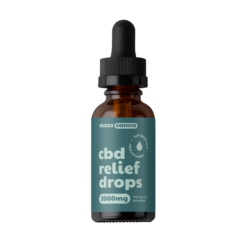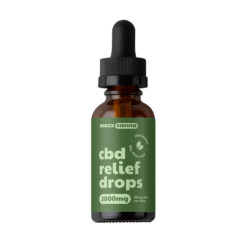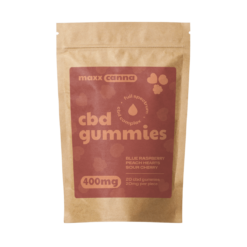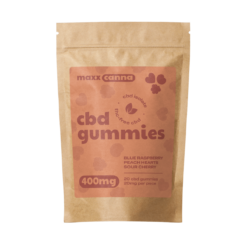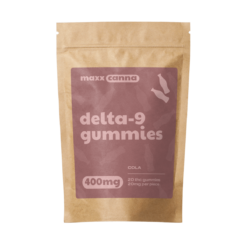
Welcome to our comprehensive look at the exciting subject of how long CBD stays in your system. If you’ve ever wondered how long CBD’s effects last or if it’s detectable in drug tests, you’ve come to the correct place. In this blog, we will look at the elements influencing CBD absorption, elimination, and detection in your body.
CBD, or cannabidiol, has grown in popularity due to its possible medicinal properties. On the other hand, understanding how long CBD stays in your system is essential, especially if you are subject to drug testing or want to regulate your CBD consumption properly. Throughout this blog, we will look at absorption rates, elimination processes, detection windows, and individual factors that affect how long CBD remains in your system.
Let’s get started!
Factors Affecting CBD Absorption and Elimination
Several variables determine the duration of CBD in your system, including absorption and elimination. Understanding these elements might help you estimate how long CBD will last in your body.
Different CBD intake methods and their effects on absorption
How CBD is consumed substantially impacts how soon it enters your system and its bioavailability. Oils and tinctures, pills and capsules, edibles, vaping, topical creams, and lotions are all common means of consumption. Each approach has a different onset and duration of effects, influencing how long CBD stays in your system.
Bioavailability and its role in determining CBD’s presence
The quantity of CBD that enters your circulation and hits the target receptors is called bioavailability. CBD Bioavailability rates vary according to consumption method. Sublingual delivery permits CBD to be absorbed directly into the circulation, resulting in rapid effects and a more extended stay in the system.
Metabolism and CBD breakdown
Individual variances in metabolism can affect how CBD is broken down and removed from the body. The length of CBD’s stay in your system can be affected by factors such as body mass index, water content, and metabolic rate. Also, the liver is important in metabolizing CBD; some drugs or liver illnesses can change CBD metabolism.
Dosage and frequency of CBD usage
The amount and frequency of CBD consumption can influence how long it stays in the body. CBD buildup in the fat cells might come from higher dosages or more frequent usage, resulting in a more extended stay in the system. In contrast, infrequent usage may result in rapid removal.
Consumption method and timing
The manner of CBD consumption, such as inhalation or swallowing, might influence the onset, duration, and removal of CBD. CBD is more quickly absorbed when smoked or vaped but leaves the body more quickly. Orally taken CBD, such as oils or edibles, takes longer to reach its ideal level and may stay in the system for a more extended period.
Other variables influencing CBD duration
Other factors influencing CBD duration include the type of food eaten before or with CBD, pre-existing medical issues, and interactions with other medications.
Individual reactions to CBD can vary, and the duration of CBD in your system may fluctuate depending on these circumstances. Consultation with a healthcare professional can offer personalized insights and assistance on CBD consumption and its possible influence on your body.
How Long Does CBD Stay in Your System?
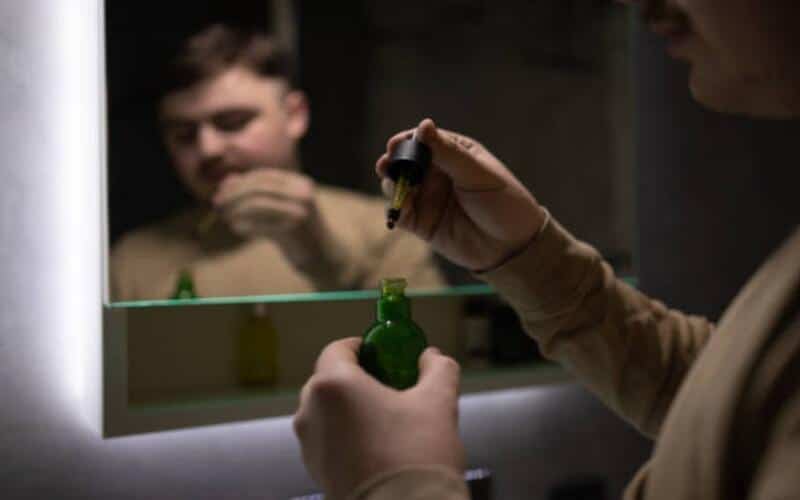
CBD has several effects on the body and mind, but how long does it last in your system? The amount of time CBD stays in your system is affected by various factors, including the mode of ingestion and individual metabolism.
CBD in the Bloodstream
CBD enters your bloodstream and circulates throughout your body when you take it. The peak concentration of CBD in the bloodstream varies according to dose, method of administration, and individual characteristics. CBD’s half-life, or how long it takes for half of the compound to leave your system, can range from a few hours to a few days. However, it is crucial to note that CBD is not often the focus of drug tests, mainly targeting THC, cannabis’s psychoactive component.
CBD in Urine
Urine tests are frequently used to identify the presence of drugs that include CBD. CBD detection window in urine tests varies based on parameters such as frequency of usage, dose, and individual metabolism. CBD may generally be detected in urine up to three days after consumption. However, it is critical to distinguish between CBD and THC, as certain CBD products may include tiny quantities of THC, resulting in a positive drug test.
CBD in Hair
Hair testing is a less popular way of detecting CBD, although it has the advantage of detecting its presence over a more extended period. CBD may be found in hair follicles, and the accuracy of hair testing can vary depending on a number of conditions. Hair testing is more likely to detect long-term usage than recent or infrequent intake.
CBD in Saliva
The detectability of CBD in saliva is currently being explored, and there needs to be more information on how long it stays in your body through this technique. If your CBD product contains enough THC to be identifiable, the psychoactive component can be discovered in your saliva for up to 72 hours.
It is suggested that you purchase CBD products from reliable manufacturers that provide third-party lab testing and certify the absence of THC in their products.
Individual Variations and Impact on CBD Duration
CBD Dosage and Frequency
CBD dosage and frequency of usage can significantly influence how long it remains in your system. Regarding dosing, larger amounts of CBD are more likely to be removed than lesser doses. This is because bigger dosages produce a higher concentration of CBD in the body, which takes longer to metabolize and remove. Also, long-term CBD usage might cause a buildup of CBD in the body, extending its existence.
Regular vs. Occasional CBD Users
In terms of CBD retention, regular users may have a different experience than rare users. Because of their persistent use, normal users generally have a greater baseline amount of CBD in their system. As a result, it may take longer for CBD to be totally cleared from their bodies than it does for infrequent users who consume less or intermittent CBD.
Personal Factors
Several personal characteristics could influence how long CBD remains in your system. Age may have an effect, as metabolism slows with age, thus extending CBD elimination time. CBD duration can also be influenced by body weight, as CBD is fat-soluble and can be stored in fatty tissues. Individuals with a larger body weight may have a longer elimination time since CBD takes longer to be metabolized and removed. The rate at which CBD is digested and removed from the body can be affected by metabolism, which differs across individuals. Finally, genetics can play a role in CBD processing since some people have genetic variants that influence the enzymes involved in metabolizing CBD.
It’s crucial to note that these are broad concerns, and the particular influence on CBD duration might differ from person to person. CBD metabolism and elimination can also be influenced by factors such as general health, liver function, and hydration levels. Understanding these elements can help you determine how long CBD will last in your system, but it’s always best to get personalized guidance from a healthcare professional.
Legal Considerations and Workplace Drug Testing
CBD’s legal status in Canada
CBD’s legal status in Canada is determined by its source and THC level. CBD extracted from cannabis plants having more than 0.3% THC is regulated by the Cannabis Act and may only be purchased and consumed by licensed cannabis merchants. A prescription from a healthcare provider may be required for this CBD. CBD extracted from hemp plants with less than 0.3% THC, on the other hand, is allowed to buy and consumed without a prescription.
Differentiating CBD from THC
It is critical to understand that CBD and THC are unique cannabinoids with distinct effects. While THC is responsible for cannabis’ psychoactive qualities and can cause intoxication, CBD doesn’t give users a “high” and is typically accepted by most people. It is critical to understand the distinction between these two cannabinoids to comply with regulatory requirements and occupational drug testing standards.
Workplace drug testing policies and CBD use considerations
Employer policy on drug testing in the workplace differs. Some workplaces may have tight policies barring the use of any cannabis-related compounds, including CBD, whilst others may have more lenient or specific THC limits. Becoming acquainted with your workplace’s drug testing policy is important to understand their attitude toward CBD usage and any possible consequences. If you need clarification, speak with your employer’s human resources department or seek legal counsel.
Conclusion
To summarise, knowing how long CBD remains in your system is critical for making educated CBD consumption decisions, especially when considering legal and employment consequences. The duration of CBD’s presence in your system might be influenced by factors such as consumption method, individual metabolism, and drug test type. By being aware of these elements, you can effectively navigate the world of CBD while adhering to legal restrictions and workplace norms.
Remember that taking CBD properly involves sticking to authorized doses, communicating with healthcare experts as needed, and being up to date on the legal status of CBD in your area. By doing so, you can enjoy the advantages of CBD while avoiding any potential issues.
CBD may be a helpful supplement to your wellness regimen if used responsibly and with knowledge!

